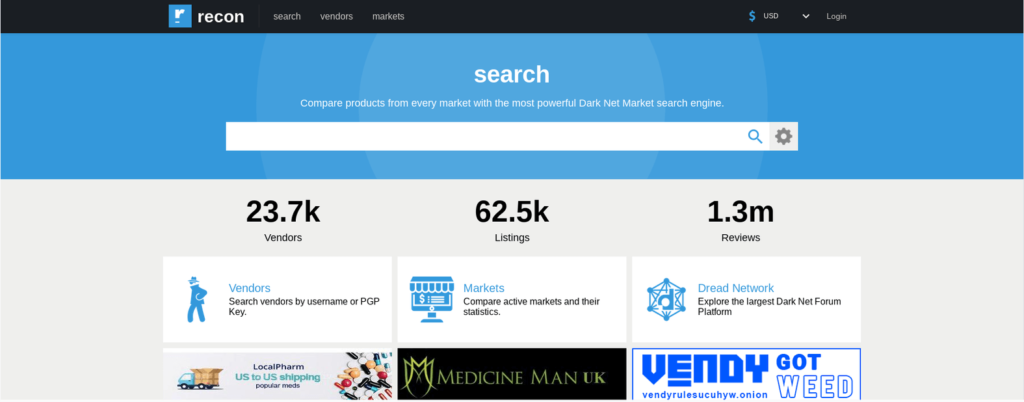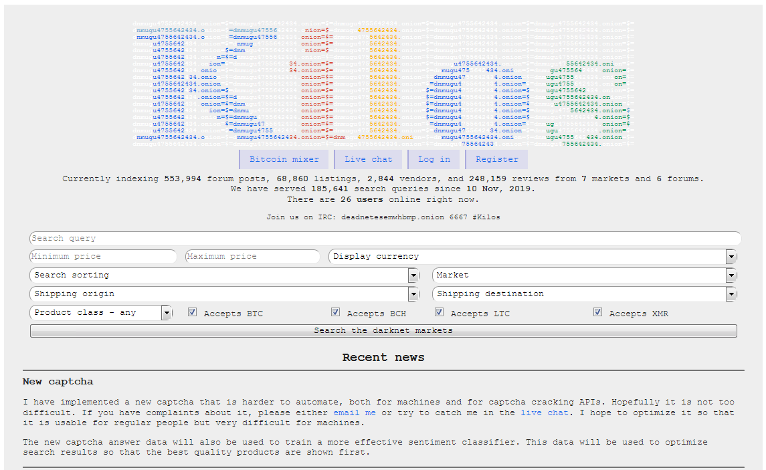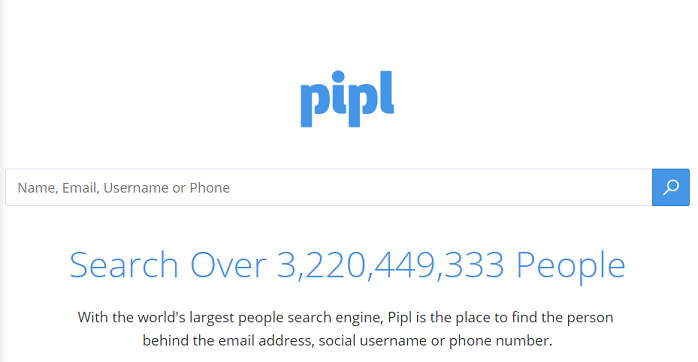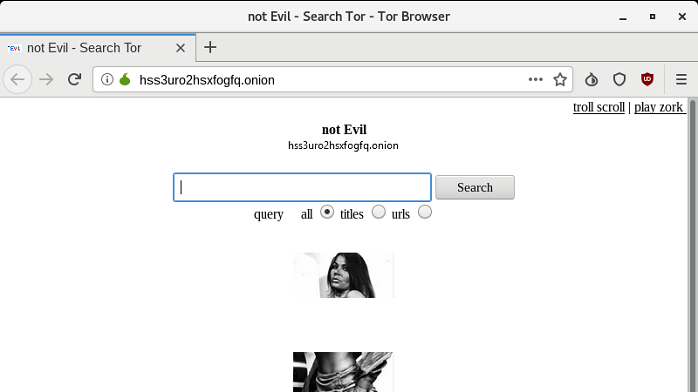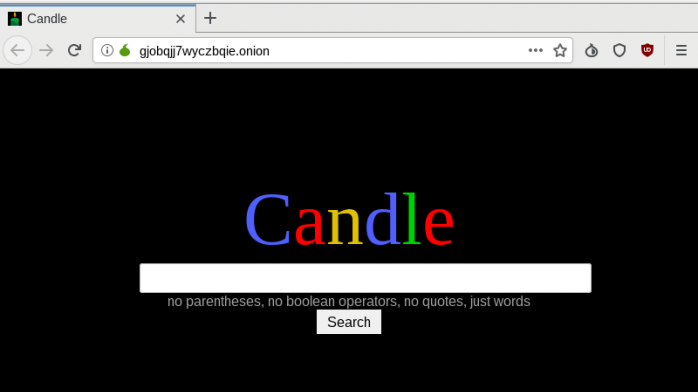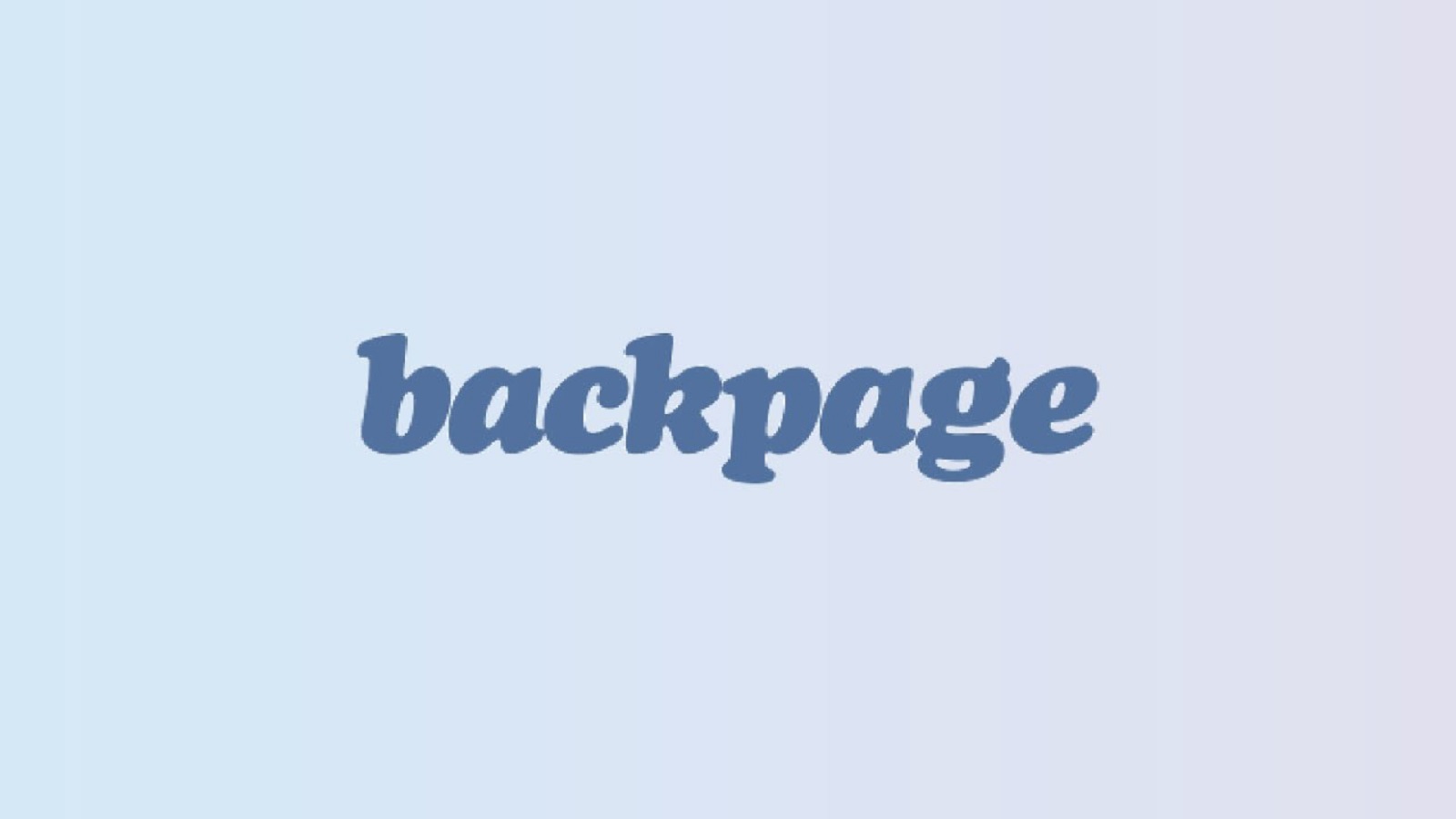
10 Best Dark Web Search Engines For Exploring Hidden Internet
The Dark Web, as part of the Deep Web, is defined largely by the fact that search engines can't index it. Yet, people need to find onion sites in order to use them, and many onion sites would be pretty pointless if no one ever visited them.
Which brings us to the idea of Dark Web "search engines". Is there such a thing? How do they work? It's a little more complicated than simply making a "Google for the Dark Web", but in this article, you'll learn about some of the best "search engines", right after we explain what the special meaning of that term is in this context.
What Are Dark Web Search Engines?
Many so-called Dark Web search engines are really just repositories of links. This is actually how early search engines on the internet worked more like a giant phone book than a web crawler that indexed the contents of sites.
Then, of course, there are search engines on the Dark Web that search the surface web. In other words, they provide a super-secure way to search for things on the regular internet that you don't want to be attached to your history or identity. So adjust your expectations a little of what it means for something on the Dark Web to be a search engine and feast your eyes on the Best Dark Web Search Engines, in your search for hidden network content.
1.Google
Google? Seriously? Yes, the world's most popular search engine won't actually let you search the Dark Web directly. However, you can use Google as the first step to finding all the other search engines that can search the Dark Web. So in a way, it's the Dark Web search engine search engine. After all, it's probably how you found this article.
2.Recon
Source: The Onion Web
Recon is one of the next-generation of Dark Web black market search engines. Announced early in March, it's the product of two years of work by the same people behind the Dread forums. Engines such as Recon are meant to fill the vacuum left when Grams went under. That search engine was revolutionary for its ease of use, but it remains to be seen if Recon can avoid the same fate. According to the report by The Onion Web linked above Recon covers 40 different marketplaces and 21,000 vendors.
3.Kilos
Source: Digital Shadows Blog
Our own Bill Toulas covered Kilos in this excellent article, but in case you're in a hurry, there are a few important things to know. It's another black market search engine, which is meant to be a successor to Grams. Get it? A Kilo is a thousand times bigger than a Gram. This engine is an advanced, next-generation system that's indexed an unprecedented number of market platforms. It integrates Bitcoin mixing, direct bidding, anti-bot protection, and has strong anonymity features. If any engine has staying power, Kilos might just be it.
4.Pipl
Pipl is a search engine that trawls a vast number of sources for information on individuals. You can, for example, provide an email address or a social media handle and Pipl will show you every bit of someone's online presence linked to that name. The reason it qualifies as a Dark Web search engine is that the service taps into databases that are not exposed to the public web. Sadly, Pipl is no longer free, but if you're serious about doing a background check or uncovering someone's identity, it can be an invaluable tool.
5.DuckDuckGo
DuckDuckGo is easily accessible via the surface web, and you just have to type its URL into any browser. It also offers an onion domain, which means that it counts as a Dark Web search engine, although it's not really an engine that searches the Dark Web itself. You can search for onion links using this tool, but your mileage may vary.
What makes DuckDuckGo special is its ability to return relevant search results almost as good as those provided by Google. Yet, it does not need to store any information about you or your search history in order to do it. It's one of the best privacy-focused search engines in existence, and its presence on the Dark Web just adds another strong layer of security.
6.Torch
Torch is one of the oldest onion site indexes in existence. While no one knows for sure how much info is stored on the site, Torch itself claims that there are more than a million pages in its index. If something you've heard of exists on the Dark Web, Torch is probably your best chance of finding it.
7.The Onion URL Repository
Just as the name suggests, the Onion URL directory is another massive dump of onion sites with descriptions. More than a million sites by all accounts. That's a lot of possible destinations to sift through, although no one knows how much of it overlaps with a site like Torch and how much is unique to this repository. Unfortunately, we weren't actually able to find a working link to this one at the time of writing.
8.notEvil
notEvil is the closest thing to a Google experience you may get on the Dark Web. The design of the site and how it appears to work is very reminiscent of the search giant. The name of this search tool is also a direct reference to Google since the company once had the motto "don't be evil", although that has been quietly retired.
notEvil provides some of the most relevant results and is probably the best "proper" search engine on the Dark Web.
9.Ahmia.fi
OK, Ahmia is something a little different to the other sites listed here. Instead of being a search engine that resides on the Dark Web, this is actually an engine that searches the Tor Hidden Services network from the surface web. It also has an onion service, and to actually visit any of the sites listed, you'll need Tor, but it's pretty awesome that you can look for onion sites from any computer, not just one that has access to Tor.
10.Candle
Candle is a fairly new project that was first announced on r/onions/ three years ago. It's a hobby project from the creator, trying to make a Google-like search engine for Tor. So Candle has actually been indexing onion sites, and when it was announced, there were already more than 100,000 pages.


